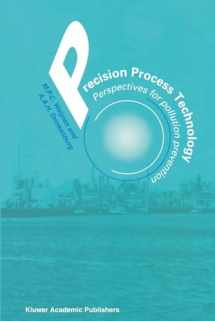
Precision Process Technology: Perspectives for Pollution Prevention
Book details
Summary
Description
New process technology strategies are required to cope with the future. Fossil feedstocks are losing ground in favour of renewable feedstocks and secondary resources. Conventional processing routes using thermal `sledgehammer' techniques are replaced by highly selective (bio)catalytic conversions. The future process engineer is neither allowed to think in terms of unit operations, nor to take for granted the conventional practice of continuous steady state processing. Hybrid systems and transient operations are more and more frequently encountered. The continuing impressive progress being made in process modelling and control will revolutionize the process industries.
In the new generation of chemical production processes the keyword is precision. Precision in terms of selectivity and of efficiency, is required to maximize the utilisation of materials and energy. Moreover, enhanced precision is needed to exploit the quality of materials and energy to the full extent. Only by reducing the squandering of materials, energy and quality will a harmonious relationship be established between the process industries, the economy, and the environment. Process integration, as well as an integrated effort by the disciplines involved in process technology, will be of crucial importance in attaining the goals of precision process technology.
These emerging strategies involve an active exchange of tools and ideas between a variety of disciplines, not only in plant design and operation, but even more in the early stages of process development and design. By looking from various angles at what the future has in store for the process industries, this volume systematically lifts the corners of the veil and may inspire to establish a new tradition of precision in process technology.


We would LOVE it if you could help us and other readers by reviewing the book
Book review



